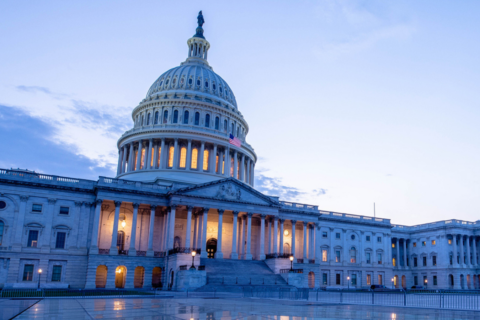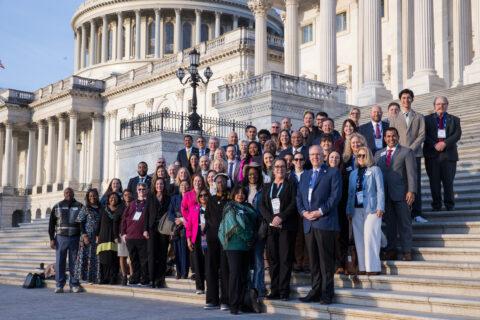Co-authored by Amy Cook, JD, Senior Legal Program Manager at CPHLR
The number of state laws preempting local policies governing transgender rights in the United States has been steadily increasing since 2019, according to newly updated research by the Center for Public Health Law Research (CPHLR) at Temple University School of Law.
There were 27 states at the end of 2024 with laws explicitly limiting local authority related to rights for transgender Americans compared to three states in 2019.
The data, available on LawAtlas.org, now captures laws in all 50 states from August 1, 2019, to December 31, 2024. In the latest update, the data show increases in state-level preemption limiting local protections for transgender individuals in three areas over the past five years:
- There were no states in 2019 that used preemption to restrict participation in sports for transgender athletes. Five years later, there were 26 states at the end of 2024.
- As of December 31, 2024, 12 states had policies that regulated disclosures to parents by education staff related to social transition compared to one state in 2019.
- As of December 31, 2024, 10 states preempt gender-affirming care. No states preempted gender-affirming care until 2021.
Tracking Preemption
These data are part of a larger dataset project created and maintained by the Center for Public Health Law Research (CPHLR) created in collaboration with NLC and funded by the Robert Wood Johnson Foundation to track preemption in the United States since 2019. The data include features of state law in 10 domains:
- Ban the Box
- Firearms
- Mandatory inclusionary zoning
- Municipal broadband
- Mandatory paid leave
- Rent control
- Transgender rights
- Local law enforcement budgets
- Race and racism in school curriculum
- Election policies
Our Response
“Preemption is increasingly used as a tool by states to limit the authority of cities, counties and municipalities across a broad array of issues, interfering with local governments’ ability to meet the needs of their communities,” said Amy Cook, JD, senior legal program manager at CPHLR and a lead researcher on this project.
NLC LGBTQ+LO President Councilmember Ty Stober said, “All people, transgender or not, deserve the freedom to be themselves and have the opportunity to pursue their dreams. Cities strive to treat our residents with fairness, inclusion and dignity. When state preemption stops cities from protecting every resident, the security of the entire community is undermined.”
States are increasingly using preemption to legislate social issues that often target the most vulnerable populations, while also eroding local democracy. It is crucial that local leaders are given autonomy to meet their residents’ needs, which can vary significantly between communities, even within the same state.
The transgender rights domain saw greater shifts in the landscapes than the other domains tracked in 2024. It has also been among the more volatile legal areas captured since the project started tracking that domain in 2019.
The data can help inform further evaluation to understand the relationships between the laws and health that can guide policymaking decisions going forward.
Explore More
The dataset is available to explore and download for free on LawAtlas.org, the CPHLR legal data library currently home to more than 130 datasets capturing law and policy of public health significance.








